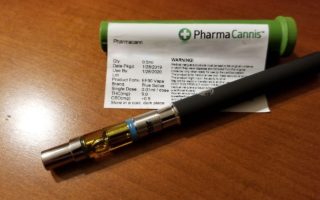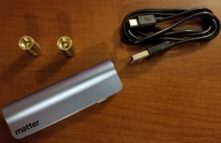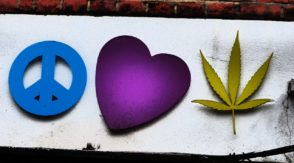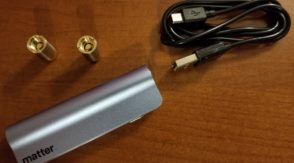Why Pain and Sleeplessness Are the Two Main Reasons for Cannabis Use
July 12, 2019 by Scott Talon 0 Comment

Freedom from chronic pain and sleeplessness are the main reasons people use cannabis, according to a recent study. The results revealed not only the sheer number of people suffering from these situations, but cannabis’ potential to replace other more harmful pharmaceutical drugs. Let’s take a personal look at why that is.
Also read: CBD as an Antibiotic? Cannabidiol Shows Antibacterial Properties in New ASM Study
Inverse reported on survey results from two U.S. retail stores from August to October 2016. The survey asked participants about several factors as to why they used cannabis. The main two reasons, unsurprisingly, were to alleviate pain and as a sleep aid. I say unsurprisingly as cannabis has for centuries been used specifically for those (and many other) purposes. More importantly, the results of the survey showed by a massive margin how much people self reported these kinds of use cases.
Chance to Reduce Opioid and Pain Medication Use
Access to legal cannabis also allowed the survey respondents in many cases to cut down or eliminate other forms of medications. 65 percent of respondents reported taking cannabis for pain, while 74 percent reported taking it to help with sleep. This is something this journalist also is experiencing personally in positive manner. Before we get more into that, let’s look at some of the information from the survey first. The full survey form can be found here.
From the Journal of Psychoactive Drugs:
Of 1,000 adult-use only customer respondents, 65% reported taking cannabis to relieve pain and 74% reported taking cannabis to promote sleep. Among respondents taking cannabis for pain, 80% reported that it was very or extremely helpful, and most of those taking over-the-counter pain medications (82%) or opioid analgesics (88%) reported reducing or stopping use of those medications. Among respondents taking cannabis for sleep, 84% found it very or extremely helpful, and most of those taking over-the-counter (87%) or prescription sleep aids (83%) reported reducing or stopping use of those medications. De facto medical use of cannabis for symptom relief was common among adult-use dispensary customers and the majority reported that cannabis decreased their medication use. Adult use cannabis laws may broaden access to cannabis for the purpose of symptom relief.
As we can see by the results the self reported data shows many have cut back or stopped over-the-counter or prescription medications in favor of cannabis. While the country is in gripped in an opioid epidemic, for many finding safer and effective alternatives is a must. A realization is emerging that cannabis is that alternative.
The Many Faces of Pain and Sleeplessness
Now keep in mind nothing is without side effects, some sort of drawback or any other negative. That’s especially the case with complex medical conditions like chronic pain and sleep disorders.
The causes of just those two problems can be myriad and with more than one underlying cause at the same time. Due to this, many patients go through several types of medications, and frequently end up taking several together to treat their pain and or sleeplessness. This snowball effect can end up with a patient addicted, or taking more medications to achieve weaker and weaker results — even if they don’t become addicted.
However, while rates of cannabis addiction are low it is still a possibility. So as with anything caution is needed. This survey was also not a medical study but its results shouldn’t be discounted.

Personal Experience Is Often Unexpected
As I can attest personally, cannabis does in fact help with pain and sleeplessness. This doesn’t mean it will for everyone, but it is directly relatable to my experience. In fact I should also state I went into my local medical marijuana program skeptical and even afraid of it. Instead, I have had my eyes opened in a positive manner. (I will talk about this more in future articles.)
As you can see from my bio below I have a spinal injury. This has left me not only with the damage from the injury itself, but also the nonstop, intense pain in my legs, hip, foot and back that never goes away. It also causes my insomnia to get worse. Who can sleep when you’re in pain? It sucks you can’t get comfortable, and when you do finally fall asleep you wake up as soon as the pain overwhelms your exhaustion.
It’s a vicious cycle.
I was lucky enough to get into my state’s medical cannabis program. One of my first concerns was not wanting to end up losing my mental acumen. A huge challenge with prescriptions for pain and sleeplessness is the mental fatigue or fog they can cause. We all know cannabis can get you high or stoned depending on what type you’re taking. And this was the last thing I wanted or needed. I already can’t move easily; I don’t want to be burnt out on top of it.
Pain Relief Without the Fog
I quickly found that with cannabis it was a different experience, and I don’t have to take it in mind-altering doses to get some relief. I also get the added benefit of not having to take opioids. The other positive was that one type of cannabis I can take during the day is a sativa based med. The sativa strain gives me some energy, lifts my depression a bit, and I don’t have a cloudy head.
Cannabis alleviated some of the pain, so I was able to eliminate all but one prescription pain medication. The CBD helps with inflammation and anxiety the constant pain whips into a frenzy if it’s not controlled. These results are with a 9.5mg dose every six hours or so during the day. Sometimes if I’m having a lot of pain I can take up to 19mg for a dose. I rarely need more. It’s helped me quite a bit just being able to get through a day. It doesn’t make my injury better or miraculously heal me, but I’m not a opioid zombie… or dead. This is a positive change.
For sleep, it’s been another change for the better. I have an indica that is 9.5 mg which I take at bedtime. Instead of taking hours to fall asleep or taking fistfuls of opioids or benzos at night I take one med and the indica now. Instead of waking up every hour or two I can sleep three to four before the pain wakes me back up.
This is a positive change from before I had medical cannabis and needed fistfuls of meds. I got fitful if any sleep, and chemically induced sleep from meds seldom is restful. With cannabis I at least don’t feel drugged and foggy in the morning. I’m able to have a clear head to start the day.
Expert Advice Helped a Lot
Again none of this changes my injuries’ disabling effects, but it does seem to be a better option to handle the symptoms. Ingestion options also seem to change the results as well. For the sativa the vape is the most effective delivery method, whereas for bed the capsule form is longer lasting and gives more of a sleep effect than vaping the same type. So the ability to try several forms and types to figure out what worked best for me was key. As is having great doctors and pharmacists who help me with my concerns and my conditions. Through education and expert advice we found the right doses, types and delivery options.
When I read this survey I knew I needed to share some of my own experiences. It’s important not only to report on data but also offer actual insight and real experience when I have it. I will share more of my own experiences as we go. I look forward to hearing yours too. Cannabis is something that is recognized as a medicine to some, fun to others, a scourge to even others and simply a conundrum to the rest.
My experience has been interesting and definitely a learning opportunity. I’m glad it’s an option as I watch the medical industry churn away a ever more amazing breakthroughs. I look forward to the day they can cure the damage and I can move freely again. Until then I glad a simple plant can help me after years of finding only disappointment.
What are your thoughts on the medical uses for cannabis? Let us know in three comments section or on social media.
Image Sources: Pixabay, Cannabis Sentinel








